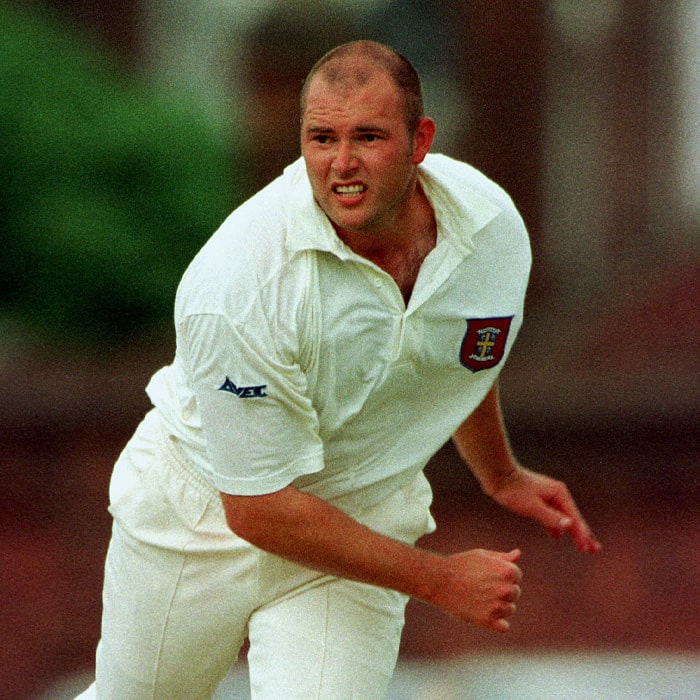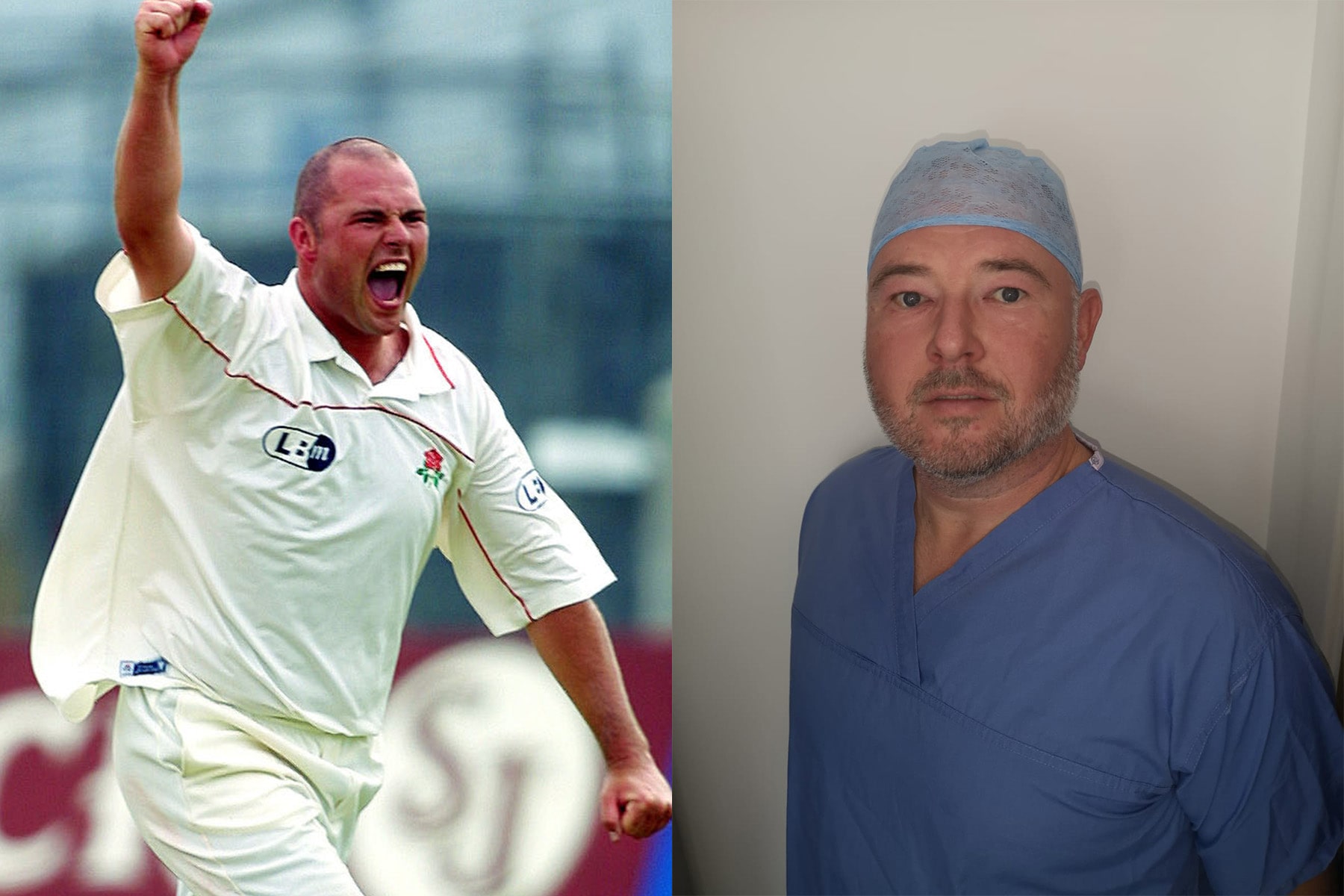PCA PRESS RELEASE
John Wood on his journey from taking wickets to saving lives.
To see more articles, click here
“I think I have thrived in my current role partly because of the teamwork aspect of what I had done before. I think what really pushed me along was the life experiences that I had had.”
Though working on a busy hospital ward in Bradford might seem a world away from bowling on a green seamer at Chester-le-Street, former Durham and Lancashire man John Wood is grateful for the skills he picked up whilst playing professional cricket.
The 50-year-old, who picked up just under 500 scalps in all formats during a 14-year playing career, works as an Operating Department Practice (OPD) at Bradford Royal Infirmary, having previously been employed by Inland Revenue and a recruitment firm after retiring from the professional game.
In an interview with PCA Personal Development Manager (PDM) Matthew Wood, John reflects on what he could have done better during his playing career, how he got to where he is now, and what he enjoys about working on the NHS frontline…
- How do you reflect on your playing days and what stands out when you think back?
- I have many fond memories of my time with Durham and Lancashire, and I miss the atmosphere and camaraderie with my team mates more than anything. When I reflect on my playing career, I suppose I could have worked harder than I did both on and off the field.
- Tell us about the journey from finishing your professional career to where you are today?
- I have to be honest and say it was a real shock when my playing days came to an end. Even though I knew it had to happen at some point I was totally unprepared for what lay ahead.
- Initially I spent a year working for Inland Revenue, but realised quickly that it would not pay the bills going forward for the type of life I wanted to live. So I got in touch with an agency that helped professional sports people find work once they had retired. Inevitably, I was led towards a career in sales which is a road that many seem to follow.
- The company I worked for (Michael Page) seemed to be a good one and invested in me and my education to get a start in the world of financial recruitment. Things went well for a couple of years and the money was pretty good, however the constant pressure of KPIs (key performance indicators) and sales targets started to drown me and I got to a stage where I was dreading Monday mornings and the week ahead.
- I knew it was time to get out and look for a job that I would really enjoy and that I would not be thinking about once I finished for the night or weekend. I heard about a job working in hospital theatres called Operating Department Practice that seemed to fit the bill. However, because I was a bit older and had been out of education for a while I had a few hoops to jump through to get there. I had to go back to university to do a foundation degree to prove I had the skills to complete the ODP course. Once complete and on the ODP course, which lasted two years, I felt immediately that this was the role for me.
- Upon completion of the course I received three job offers within a month, of which I accepted one at Bradford Royal Infirmary (BRI). I would never have thought I would end up working in healthcare but I absolutely love it. The job has the people and the camaraderie that I had missed so much from my playing days.
- Tell us a little bit more about what the job entails.
- My job requires me to work as part of a multidisciplinary team to ensure the smooth and safe passage of patients through our operating department and back to their ward. My main responsibility is to work alongside the anaesthetist to get the patient to sleep and ensure they are safe, free from pain and, in certain situations, paralysed for the operation. Maintaining this for the duration of the operation and waking the patient when it is safe to do so requires certain skills and knowledge that you are taught and learn along the way as your career progresses.
- I also work in critical areas such as ‘resus’ (the resuscitation area) in A&E where anything can happen, from heart attacks to stabbings and asthma attacks to burns patients. These situations can be tense and obviously at times life or death where every second counts, but the feeling of contributing to saving a person’s life is second to none. Also, to be part of a team all striving to achieve the same goal is not dissimilar to the feeling of playing cricket as part of a team.

- What skills led you to your current role?
- I think I have thrived in my current role partly because of the teamwork aspect of what I had done before. I was 40 when I started to train and I think this was really what pushed me along as I had life experiences that many coming straight out of college don’t have. I suppose a level head and generally common sense played a part and have served me well over the past seven years or so.
- What kind of person would thrive in this environment?
- This is a role open to many. There is a shortage nationally of ODPs so anybody who likes working as part of a team and can remain calm in pressured situations would do well.
- How would somebody interested go about the next steps?
- There is generally a constant rolling recruitment for ODPs across the country, but at Bradford we are currently running a training scheme that allows successful candidates to study at university whilst they learn on the job with us. Fees are paid by the hospital and upon completion you would have a degree and a career that is safe and valued.
- I would be happy to talk to anybody interested and explain the next steps if they felt they could thrive in this environment. BRI is hoping to hold an open day in the hopefully not too distant future (Covid-19 allowing), so that will put some meat on the bones of the job and what you would need to do going forward should you be interested.













